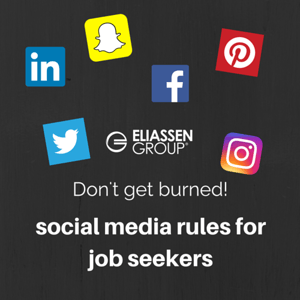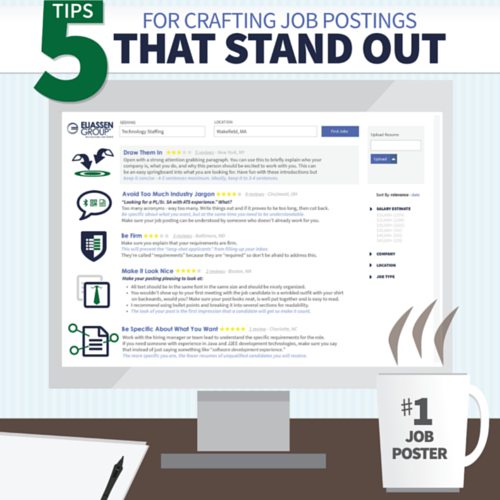During the past five years or so, we have seen many changes in the job search process. From online application processes to video resumes to phone screens, companies are thinking a lot more about how to make their recruiting process more efficient and effective. While these changes have streamlined things for job seekers, they have also brought new challenges. And nowhere is that more the case than with social media.
For younger generations that have grown up with YouTube, Facebook, Twitter, and, more recently, Instagram and Snapchat, they connect with people they know, take hundreds (or sometimes thousands) of photos with Smartphones, upload videos, and create running visual “stories” of their daily lives that follow them through school and beyond. And while technology has provided us with these amazing ways of connecting with people and brands we admire, it has also given rise to a new set of challenges when it comes to the job search.
So what should job seekers be concerned about when it comes to their social media habits? Below, we address some of the DOs and DON’Ts:
The DOs
Keep your personal profile(s) private. Yes, potential employers – especially larger, more traditional organizations - are conducting social media background checks, and they will be asking the question: “Is this someone we want to represent our company?” If you have your profile open to the world and have posted photos of that college keg party, your judgment may be called into question. So we recommend that you play it safe and be sure to keep your personal profile(s) private whenever possible if it’s a social network that you use for personal reasons.
Take advantage of the power of social media to maximize your reach. While there are some things to be cautious about, it’s clearly important to show the positive side of your social media engagement. It’s a good idea to follow the companies that you are interested in and with whom you may be interviewing. Show your interest by posting comments that will showcase your thought leadership, if appropriate. And consider including something in your profile that mentions a product or service that the company is known for – again, if applicable.
It’s important to note that a recent CareerBuilder survey found that of more than 2,000 employers, “35% say they are less likely to interview job candidates if they are unable to find information about that person online.” So clearly, it’s critical to take advantage of your social networks to ensure maximum visibility.
Show your interest via social media by connecting with thought leaders, particularly those who you interview with during your job search. While some hiring managers may not decide to accept an invitation to connect, others will and it can open the door to ongoing discussions. Be sure to join groups, follow hashtags and create lists that will showcase your areas of interest and expertise. And check back regularly to connect with the communities out on these networks.
The DON’Ts
Don’t bash people or companies on social media networks. It may sound like a common refrain but we continue to see people making this mistake. Remember that the world can often feel like a small place; your old boss may know your potential new one and that former colleague’s husband might work in HR at that company you’re interviewing with. And even if there is no personal connection, potential employers will often see comments like these as being inappropriate and lacking judgment. So before you go venting about that former boss on your Facebook page, remember that you may wind up regretting those old posts in one way or another.
The CareerBuilder survey also states that “48% of hiring managers who screen candidates via social networks said they’ve found information that caused them not to hire a candidate.” This includes:
- Provocative or inappropriate photos
- Information about the candidate drinking or using drugs
- Candidate bad-mouthing previous company or fellow employee
- Poor communication skills
- Discriminatory comments
All that said, job seekers are getting smarter about their social media actions over time. More and more, we see college professors and career coaches advising students and young professionals to think carefully about how they present themselves on social networks and online in general. As a rule of thumb, remember that you want potential employers to evaluate your abilities based on your skillset and expertise and not on some ranting comments that you posted 2 years ago. So be sure to use social media as a tool for good and not evil.
Do you have questions about your online profile and how you can really build out your thought leadership presence on social networks?
We'd love to speak with you! Reach out to us on LinkedIn or Twitter.
Connect With Us


